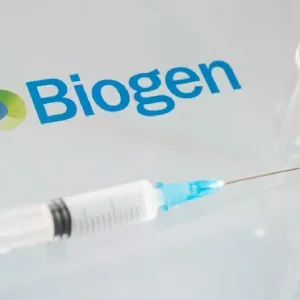Takeda said that the Phase 2b clinical trial evaluating its oral orexin receptor 2 (OX2R) agonist TAK-861 in narcolepsy type 1 patients has met primary and key secondary endpoints.
Following the positive results of the TAK-861-2001 study, the Japanese pharma major intends to quickly launch global Phase 3 trials of the OX2R agonist in the first half of fiscal year 2024. This will be subject to consultation with global health regulators, said the company.
Takeda global development head and neuroscience therapeutic area unit head Sarah Sheikh said: “We are thrilled to announce these clear and compelling results from the TAK-861 trial in narcolepsy type 1 that allows us to rapidly initiate Phase 3 trials this year as we work to deliver a medicine to patients that could address the underlying pathophysiology of the disease.”
According to Takeda, narcolepsy, a chronic and rare neurological disorder characterised by excessive daytime sleepiness, poses significant challenges despite the availability of several approved treatments.
The disorder is currently classified into two distinct types, narcolepsy type 1 (NT1), which results from a notable loss of orexin neurons leading to orexin deficiency, and narcolepsy type 2 (NT2), where orexin levels typically remain normal.
Targeting the orexin receptor 2 in NT1 patients addresses the root cause of the condition by restoring orexin signaling, said Takeda.
The company conducted two separate Phase 2b trials in NT1 (NCT05687903) and NT2 (NCT05687916).
The TAK-861-2001 trial involving 112 NT1 patients evaluated the efficacy of TAK-861.
The randomised, double-blind, placebo-controlled, multiple dose demonstrated statistically significant and clinically meaningful improvements in both objective and subjective measures of wakefulness compared to placebo at week 8.
The improvements were particularly evident in the Maintenance of Wakefulness Test (MWT), which served as the primary endpoint.
Additionally, key secondary endpoints such as the Epworth Sleepiness Scale (ESS) and Weekly Cataplexy Rate (WCR) showed statistically significant and clinically meaningful improvements consistent with the primary endpoint. A majority of patients who completed the trial proceeded to participate in a long-term extension study, said the Japanese pharma firm.
However, Takeda currently has no plans to advance TAK-861 for the treatment of NT2.
Data from the trials are under further analysis to determine the next steps for populations with normal orexin levels.
Takeda is actively developing multiple orexin agonists for patient populations with normal orexin levels, including NT2 and other conditions where orexin biology is implicated.
The company also said that TAK-861 exhibited a favourable safety profile and was well tolerated in both trials, with no reports of treatment-related serious adverse events, hepatotoxicity, or visual disturbances in either the Phase 2b trials or the ongoing long-term extension trial for TAK-861.






